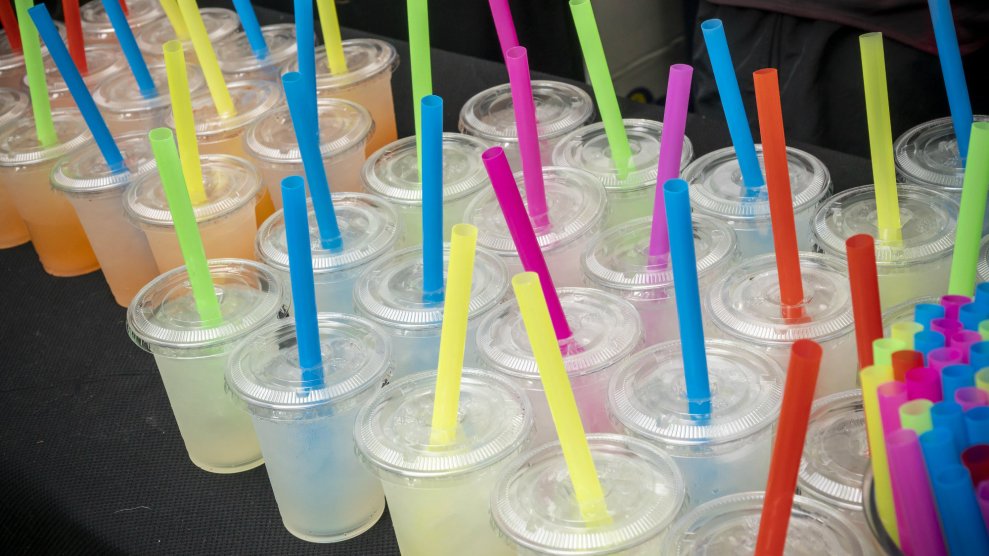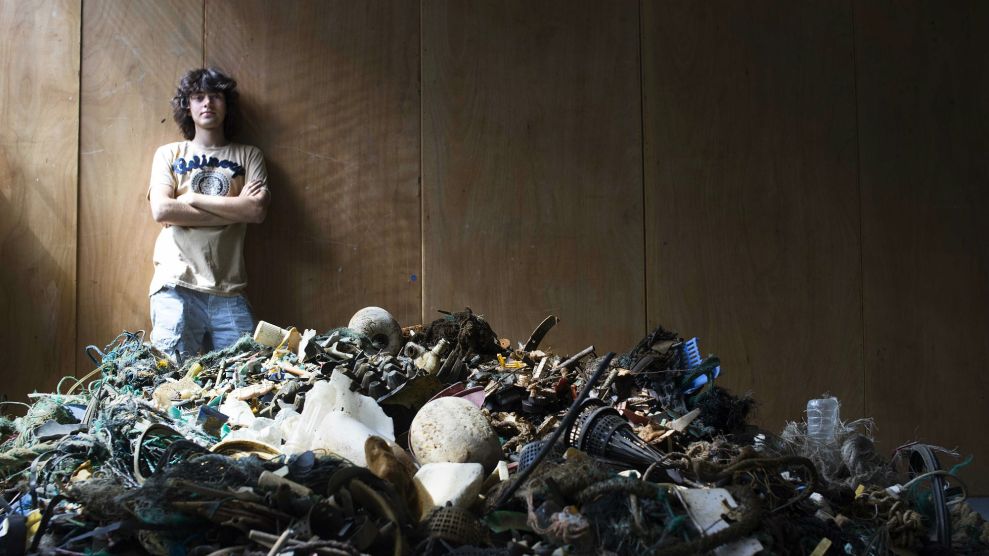
Richard B. Levine/Levine Roberts/Newscom via ZUMA
This story was originally published by HuffPost and appears here as part of the Climate Desk collaboration.
In a first-of-its-kind law for any major American city, Seattle has instituted a ban on plastic straws and utensils at all food service businesses.
The ordinance, which went into effect Sunday, prohibits restaurants, delis, coffee shops, food trucks, cafeterias and grocery stores from providing the plastic items to customers. Upon request only, those vendors may provide people with a compostable straw or utensil.
Since 2008, Seattle has been rolling out a citywide ban on single-use plastics and removed exemptions from the list of prohibited items each year. Since there are now “multiple manufacturers of approved compostable utensils and straws,” those items’ plastic counterparts will no longer get a pass, the city said in its notice.
Though the ban carries a $250 fine for any businesses who violate it, city officials told The Seattle Times that the focus for the next year will be more on educating and assisting businesses with compliance than on enforcement.
As the threats posed by plastic straws, utensils and other small plastic items have become clearer, environmental groups have made a broad push for cities to curtail their use through legislation. These small pieces of plastic are among the most frequently littered items, advocates for such bans say. They also easily make their way into the ocean when washed down storm drains and are too small to be processed by recycling centers.
Last September, the ocean advocacy nonprofit Lonely Whale Foundation got businesses in Seattle to exchange 2.3 million plastic straws out for compostable alternatives as part of a Strawless in Seattle campaign. The success of that effort, the campaign said, coincided with the city’s announcement that a plastic straw and utensil ban would go into effect in July.
A similar effort is underway in San Francisco, where lawmakers introduced a plastic straw ban legislation in May. Several beverage-focused businesses HuffPost spoke with at the time said they’re on board with the ban and have already started swapping out plastics for compostables.
While Seattle can lay claim as the first major city to install a plastic straw and utensil ban, similar bans are on the books in California’s Santa Cruz County and in Malibu.








